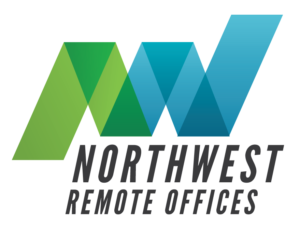Many businesses are facing never before seen challenges as a result of the societal response to the threat of COVID-19. In an effort to prevent the spread of the novel coronavirus outbreak, more and more companies are closing offices and requiring employees to secure remote work from home. Although many are familiar with remote work among today’s companies, many employees who are now starting their workday each morning have never worked from home for extended periods of time. Unsettlingly, this means that these employees may also be unaware of the cybersecurity best practices to implement when it comes to secure remote work.
Companies shifting to a secure remote work in order to protect employees health in the COVID-19 pandemic should also consider the importance of protecting their data. Below are considerations to help businesses prepare to act when the need arises.
1. Home Network Assessments & Updates
It’s important to embolden your employees to evaluate their home networks to secure remote work. At minimum these networks need to secure Wi-Fi connectivity with the use of WPA2 security. Most employees likely never have but they should change their home Wi-Fi admin user names and passwords from the default ones.
2. VOIPs
Utilizing voice over IP (VOIP) technology for voice calling, instead of using standard phone lines can be incredibly advantageous, especially when companies have employees working remotely some of the time. Calls can be forwarded to employee cell phones and not limited solely to the in-office phone system.
3. Virtual Private Networks (VPN)
There are several items to consider when it comes to the virtual private networks being utilized by the business for remote access to internal company networks and data.
Licensing
Companies can run into issues when all users try to access the system at the same time through a VPN if the licensing of the number of VPN seats is not done correctly. If not handled correctly, this may limit the number of users who can access the network through the VPN.
To secure remote work, companies must have the ability to securely share documents through a file sharing service or server (OneDrive, ShareFile, SFTP or FTP-S).
Often, remote access is limited to IT and a select few other team members, so capacity may need to be ramped up. For those with on-premise systems and remote desktop server, an RDP gateway positioned in a firewall DMZ network segment is a recommended safeguard.
Patch Management
Making sure user devices, network infrastructure and VPN’s are up to date with latest updates can help safeguard your business technology.
Threat Notifications
Threat notifications communicate increases in network attacks (attack detections, log reviews and phishing attempts).
Two-Factor Authentication
It is recommended to require two-factor authentication on all VPNs (where possible) and for all remote user access, in addition to continued strong password policies.
Testing Network Load Usage
It’s important to test infrastructure limits in preparation for increased remote usage and to consider upgrading for more bandwidth.
Equipping Your Team to Secure Remote Work as a Response to COVID-19
Unpredictability awaits the business world and the employees that make it happen. Educating those employees with the knowledge for heightened security is invaluable to an organization for its continued longevity and purpose.
If you need a hand, contact us or call: (509) 559-6976 to see how we can help.
